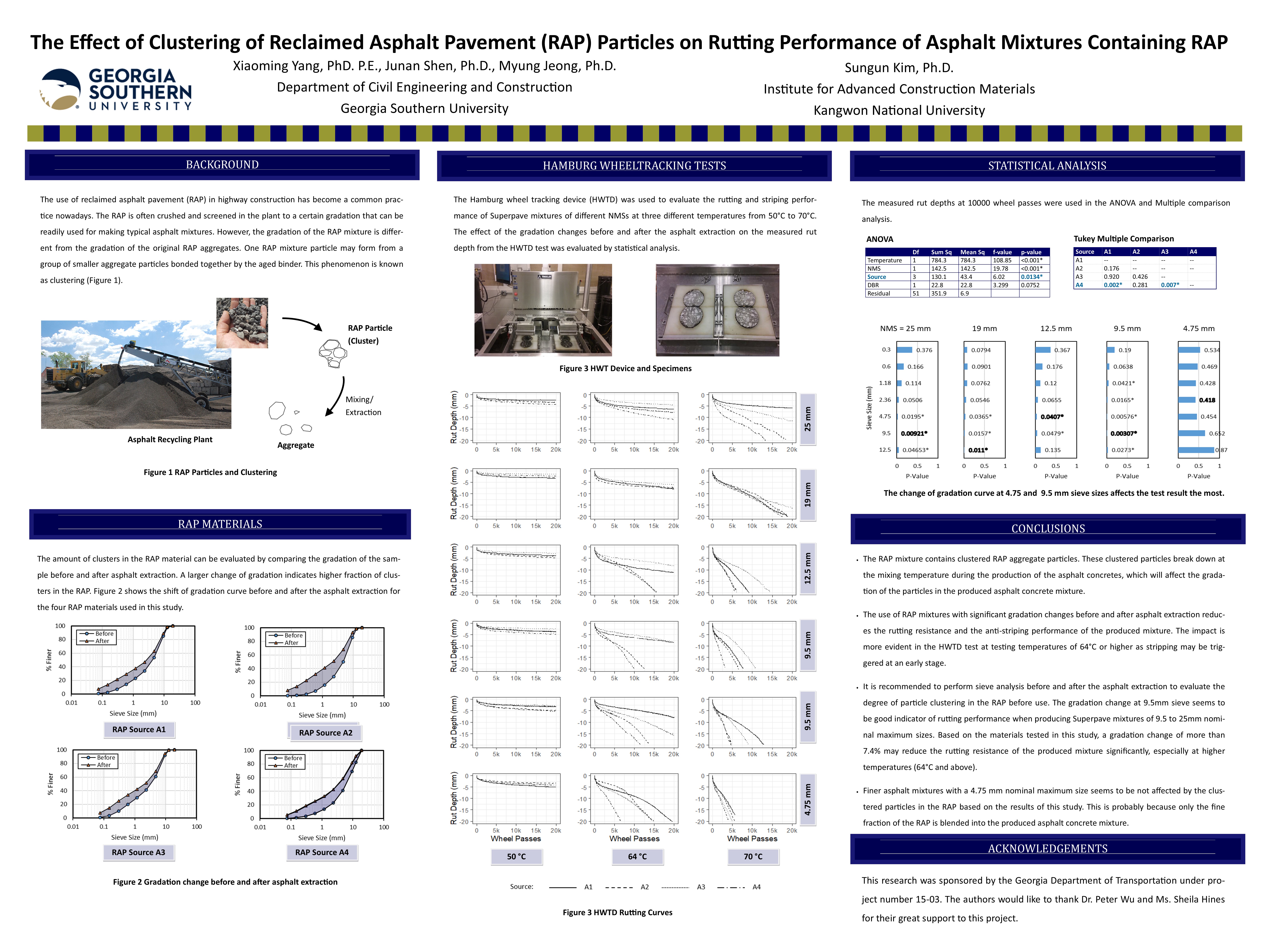THE EFFECT OF CLUSTERING OF RECLAIMED ASPHALT PAVEMENT (RAP) PARTICLES ON RUTTING PERFORMANCE OF ASPHALT MIXTURES CONTAINING RAP
PI: Junan Shen
Co-PI(s): Myung Jeong, Sungun Kim, and Xiaoming Yang
Institution(s): Georgia Southern University
Abstract
Reclaimed asphalt pavement (RAP) mixtures consists of clusters of aggregates bonded together by the aged asphalt. Declustering of RAP particles during new asphalt mixing changes the gradation of the mixture, which affects the performance of the new asphalt mixtures containing the RAP. In this study, RAP materials with different degrees of clustering were used to make new Superpave mixtures. The degree of clustering in each RAP material was associated to its gradation change before and after the asphalt extraction. The Hamburg wheel tracking device (HWTD) was used to evaluate the rutting and striping performance of the asphalt mixtures at regular and elevated temperatures. Finally, statistical analyses were performed to evaluate the relationship between the HWTD test performance and the degree of clustering in the original RAP material. The research results showed that clusters is the original RAP material has a negative impact on rutting and striping performance of asphalt mixtures with a nominal maximum size of 9.5 to 25 mm. The impact is the most evident under the HWTD test at elevated test temperatures.

Please comment below with any statements or questions you may have. Also let GTI if you would be interested webinars or presentations on similar topics.

